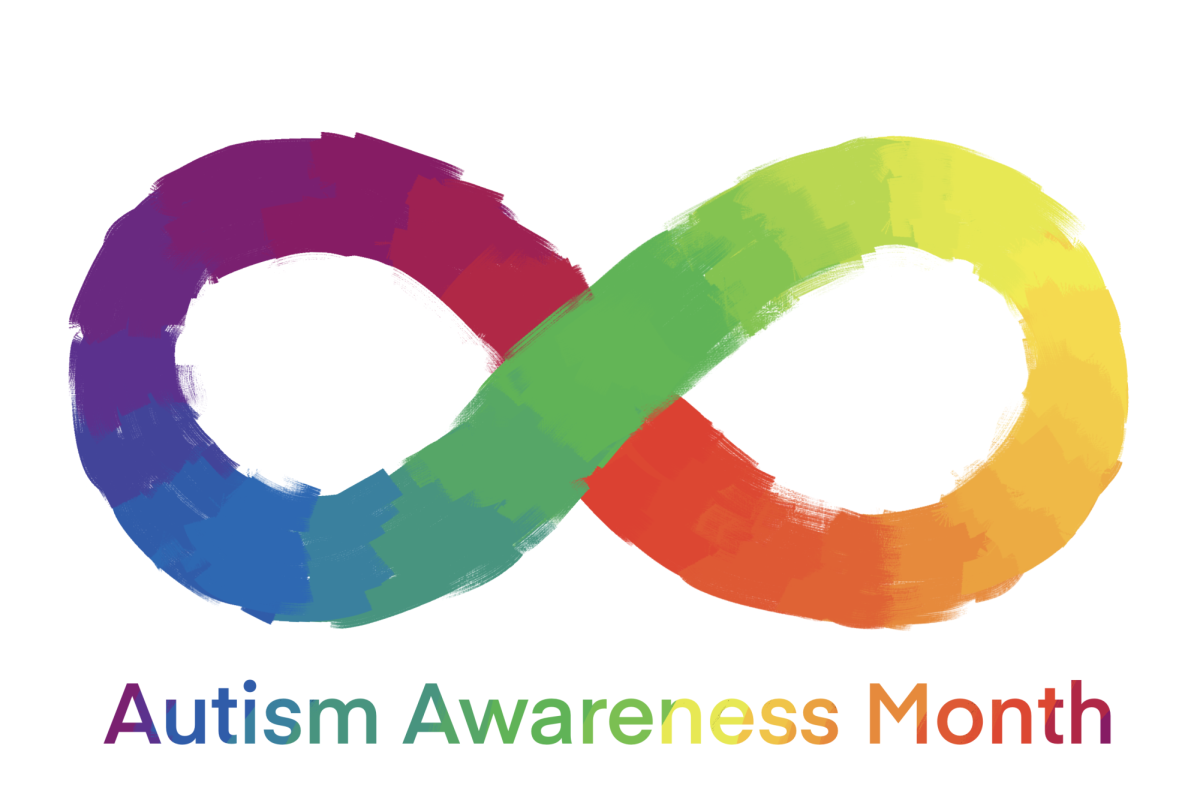For about a decade, the month of April has been dedicated to promoting inclusion for autistic individuals and education regarding Autism Spectrum Disorder.
In the 2010s, individuals and organizations, particularly the Autistic Self Advocacy Network, began observing April as “Autism Awareness Month,” a shift from the “National Autistic Children’s Week” that began in 1972. In 2021, the Autism Society of America, working with other disability organizations, began branding the month as “Autism Acceptance Month.”
The title of this month has stirred some debate regarding what is most important to currently promote — awareness so that people can better understand what ASD means and the unique experiences of autistic individuals, or acceptance to reshape the way people view ASD and encourage inclusion and accessibility.
Some people like Sophia Gallentine, freshman in LAS, say autism awareness should be the focus because understanding the different traits that autistic people exhibit, the challenges they face and what accommodations they might require is the first step on the path to acceptance.
“Awareness is a very sticky term to me, cause at first it kinda sounds like ‘Oh, be aware of this, like it’s a bad thing,’ but when you think about it more, we just want people to know what others go through so you can be more empathetic,” Gallentine said. “That’s why I think awareness is so much more important than acceptance because if you’re not fully aware of what autism is, you’re not going to accept it.”
Get The Daily Illini in your inbox!
Gallentine, who was diagnosed with autism at five years old, says her mother struggled to connect with other parents because their misunderstanding of ASD caused them to have a negative view of it.
“My mom was talking to me and she was like ‘You know, I tried to tell other moms about what I was going through and it was like I had said this horrible, debilitating disease and they wanted nothing to do with us afterward,’ because they just didn’t know what it was and thought it was scary,” Gallentine said.
Lacking knowledge of ASD allows for the negative, inaccurate perceptions of autism held by some parents and children to persist, leading to the bullying and isolation that many autistic children experience.
Hayagriv Gopinath, senior in Engineering whose older brother is diagnosed with autism, said he feels autism awareness is important because of the struggles he watched his older brother face throughout his childhood.
“Growing up, I’d see a lot of the time he’d come home upset, or my parents would tell me about how he got picked on in middle school or high school simply because he was different,” Gopinath said. “In the future, I hope that those younger than us are able to have a better understanding of them and how to include them and help them as they’re growing up.”
People’s lack of knowledge of what being autistic means can also contribute to the lack of diagnoses. Many people, especially women, don’t receive diagnoses at a young age and often go through their entire lives without being diagnosed, according to Katie Rose Guest Pryal, an autistic professor, author and speaker on neurodiversity and mental health.
“In girls, diagnoses were (and still are) missed because girls’ presentation of autism may differ from the ‘traditional’ presentation in boys,” Pryal writes. “Furthermore, research shows that girls tend to camouflage, or ‘mask,’ their autistic traits more than boys.”
“Masking” refers to the suppression of autistic traits to fit society’s standards of acceptable behavior. Children who are especially good at masking their autistic traits often fail to be diagnosed, becoming so accustomed to masking by the time they reach adulthood that formal autism tests frequently fail to detect autistic traits.
Increased autism awareness could improve understanding of how girls’ presentation of autism differs from boys’ presentation, which is considered the default, and lead to more diagnoses in girls.
On the other hand, promoting autism acceptance could help autistic people break free from the desire or need to mask around others. This is because whether masking is done consciously or unconsciously, it comes from a lack of acceptance of people who don’t fit into the norm that forces people to hide their autistic traits in order to conform to social expectations.
Aranya Adams, sophomore in LAS and intern at The Autism Program, says she believes focusing on acceptance is important because it’s the first step to raising awareness since education cannot be effective without a willingness to be educated.
“If people don’t have an open mind, they have an unwillingness to understand,” Adams said. “The ableism that autistic people may face because of their restrictive, repetitive behaviors or because of not observing social norms, I think yes, there’s a lack of awareness there, but there’s also hostility. I think what underlines it is the idea that ‘different’ is bad, and I think if we change that mindset, I think that’s the acceptance piece.”
Although hatred and hostility towards autistic people have been an issue for many years, it has taken on new forms through social media, furthering the idea that people do not have open minds towards autistic people and their experiences and challenges.
“With these past couple years, I feel like autism has been the butt of more jokes,” Gallentine said. “I don’t need to hear you’re ‘acoustic,’ I don’t need to hear you have the ‘tism.’ It makes me angry, for one, but it also makes me very sad that our generation who claims to be so accepting and so progressive in so many social movements, this is one of the things we fall short on.”
An additional reason why organizations have rebranded April as “Autism Acceptance Month” as opposed to “Autism Awareness Month” is because awareness drives can sometimes lead to the spread of false or outdated information and non–autistic voices speaking over autistic ones.
Autism Speaks, founded in 2005, has consistently played an active role in Autism Awareness Month, however the organization is widely rejected by the autistic community because in its earlier years, it treated autism as a disease needing to be cured.
Although that specific language is no longer used by the organization, it has continued to perpetuate the idea that autism is something to fear, and although the organization is called Autism Speaks, it more often than not has neurotypical people speaking on autistic people’s behalf.
“I think it’s definitely possible for Autism Awareness Month to be rebranded from the Autism Speaks organization,” Gallentine said. “Part of that would be educating on what Autism Speaks is and how it is damaging to the community and kind of reclaiming that month as our own.”
Regardless of what term is used to refer to the month of April, autistic individuals and advocates are largely in agreement that efforts to both increase awareness and promote acceptance need to be made — not only in April but year-round — for the sake of autistic individuals’ wellbeing.
“Learn about what autism means and know that it’s not a bad word and that your kid isn’t going to catch it from a vaccine,” Gallentine said. “Be willing to listen to people’s experiences and don’t talk for autistic people, let them speak for themselves, and listen.”













